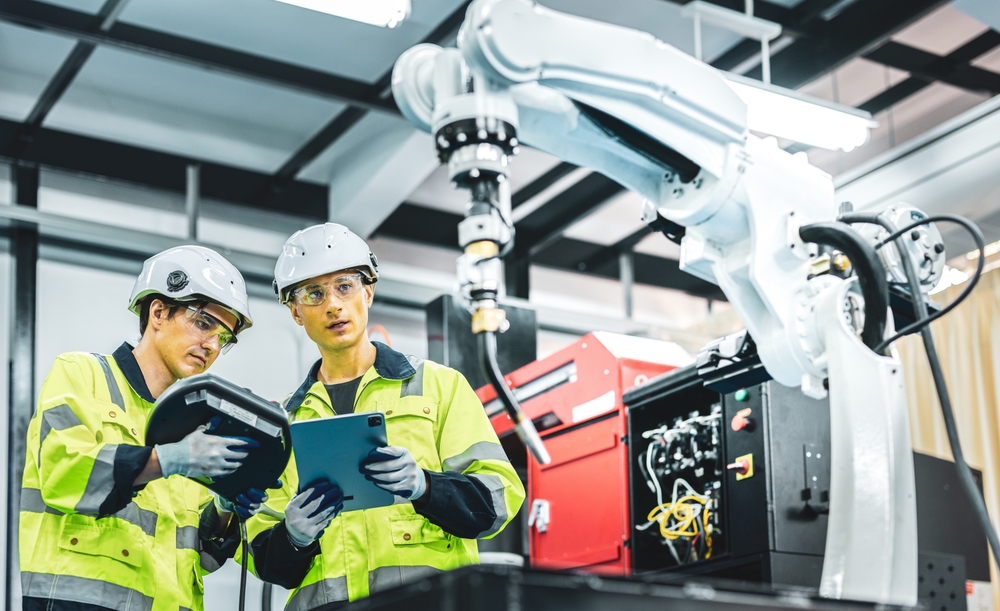Engineering continues to be an ever-changing field, with technological and methodological advancements happening all the time. For those seeking an education to become a mechanical engineer, the changing dynamics of the industry can play a huge role in determining how you learn and acquire knowledge for a future career.
As technology continues to evolve at an unprecedented pace, the education landscape for aspiring mechanical engineers is also undergoing significant transformations. It’s important for students and other professionals in the field to stay informed of these changes in order to thrive in the field.
As we look to the second half of 2023, changes in mechanical engineering education and learning processes will likely have a profound impact on many individuals looking to pursue a career in this discipline.
Stepping Away from Traditional Mechanical Engineering Education
Traditionally, mechanical engineering education has focused on building a strong foundation of theoretical knowledge and engineering principles. Students would spend a significant amount of time in a classroom or lecture setting learning and practicing complex mathematical concepts.
Traditional curricula and teaching methods have always done well at laying a solid groundwork for students. However, this education model for mechanical engineering may make it difficult for students to translate foundational concepts into practical, real-life challenges. This has led to a call for more modern teaching methods and techniques for students.
The Changing Landscape of Mechanical Engineering Education
The largest change that continues to take place in the engineering world is the advancement of new technologies. Automation is no longer only associated with industrial or traditional manufacturing plants. Now, engineering labs and other more mathematical- and precision-based facilities are also turning to this technology as well.
Because of this, emerging technologies have revolutionized mechanical engineering education. In 2023, there is likely to be a growing emphasis on integrating interdisciplinary subjects, such as robotics, materials science, 3D and 4D printing, and more. This interdisciplinary approach enables students to develop a broader range of skills they can take into their first entry-level position.
Moreover, mechanical engineering programs are increasingly prioritizing more practical skills, such as hands-on experience. Project-based learning and industry collaborations have become integral components of the curriculum. Students now have the opportunity to work on real-world projects, gaining valuable experience and improving their problem-solving abilities.

Technological Advancements Shaping Mechanical Engineering Education
Several technological advancements are reshaping the landscape of mechanical engineering education. Automation, artificial intelligence, and machine learning are now integrated into the curriculum to enhance students’ understanding of these cutting-edge tools.
Virtual and augmented reality technologies provide immersive learning experiences, allowing students to visualize complex concepts and interact with virtual prototypes. Likewise, simulation tools and software play a crucial role in practical learning, enabling students to experiment with designs, test hypotheses, and analyze outcomes in a virtual environment.
Plus, the incorporation of data analysis and predictive modeling can also equip students with the skills necessary to make experienced, informed decisions based solely on data and numbers.
Impact on Students and Future Engineers
It’s obvious that changes and developments in mechanical engineering education do and will continue to have a strong impact on students and future engineers. The evolving curriculum not only gives students more practical experience, but also more exposure to emerging technologies. Because of this, graduating engineers are better prepared as they step into their career, with higher employability and industry readiness.
Further developed critical thinking and problem-solving skills allow students to analyze complex situations at a higher level and provide more innovative solutions when needed. This nurtures a mindset of continuous improvement and adaptability, and enhances the ability to succeed in the workplace.

Challenges and Considerations for Students
While changes in mechanical engineering education can open up exciting prospects and opportunities for students, there can also be challenges. Adapting to rapidly evolving technologies and tools requires a commitment to continuous learning and keeping up with the latest advancements. It will be essential for students to embrace a growth mindset and cultivate a passion for lifelong learning.
Finding the right balance between theoretical knowledge and practical application can also be a challenge. Despite mechanical engineering curriculum moving away from traditional methods of learning, an understanding of foundational engineering theories and methods is still necessary to be successful in this field.
Many students may struggle to apply foundational knowledge to real-world problems. Because developing hands-on skills is so important, students should consider actively seeking out opportunities for internships, apprenticeships, co-op programs, or projects that require a certain level of practical experience and knowledge.
How to Adapt and Thrive in the Changing Landscape
A changing mechanical engineering industry is both exciting and daunting; fortunately, there are many steps students can take to ensure they can easily adapt.
First, it’s important for students to seek out opportunities where they can receive hands-on experience to bridge the gap between theory and practice. This may mean engaging one-on-one with industry professionals, participating in conferences, or attending local engineering events to network with others in the industry.
Students should also consider embracing online learning—even long after they’ve already graduated from school. Online resources, such as those through The American Society of Mechanical Engineers, are great for acquiring supplemental knowledge and may come in the form of online courses, webinars, or even specialized tutorials.
With so much change occurring in the mechanical engineering world, there’s no doubt that education will continue to evolve in 2023 and beyond. With these changes come exciting opportunities for students and future engineers to gain relevant knowledge and eventually even contribute to the advancement of the field.
By embracing the evolving landscape, staying adaptable, and actively pursuing continuous learning, students seeking education in mechanical engineering can thrive in this dynamic discipline and shape the future of mechanical engineering.
Are you ready to start your mechanical engineering career? At Austin Nichols, we place candidates in the engineering, manufacturing, and construction industries. Contact us today to learn more!










